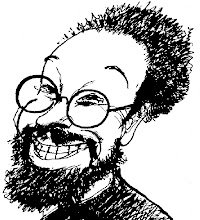So, after I wrote about how more and more it's begun to seem to me that Americans mistrust intelligence, Judith Warner writes about the same thing here in the New York Times Magazine.
She begins by observing that U.S. Supreme Court nominee Elena Kagan was probably downplaying her intelligence during her recent confirmation hearings because "[a]ny hint of an I’m-better-than-you sentiment, especially if that sense of superiority is based on intellect or fancy speech or having attended an Ivy League school, can go over very badly in America today, where 'elite' has gone from being a word of admiration to one of insult."
Given how prevalent this anti-intellectual bias seems, I'd been thinking that it wasn't a new phenomenon. I'm probably right. Warner goes on to quote from Richard Hofstadter's Anti-Intellectualism in American Life. (It won the Pulitzer in 1964.) This one sentence sent me to Amazon.com in search of the book: "[Intellect] is pitted against democracy, since intellect is felt to be a form of distinction that defies egalitarianism."
Warner also quotes Susan Jacoby, whose The Age of Unreason contains frightening examples of what Americans don't know.
According to a survey Jacoby cites, American 15-year-olds rank near the bottom in math literacy when compared to students in 28 other countries. Two thirds of us don't know the three branches that make up our government and an equal number can't name one Supreme Court Justice.
Now, just one more set of numbers, these from a column by the Times' David Brooks: "In their book, The Narcissism Epidemic, Jean M. Twenge and W. Keith Campbell cite data to suggest that at least since the 1970s, we have suffered from national self-esteem inflation. . . . In 1950, thousands of teenagers were asked if they considered themselves an 'important person.' Twelve percent said yes. In the late 1980s, another few thousand were asked. This time, 80 percent of girls and 77 percent of boys said yes."
Saturday, July 17, 2010
Subscribe to:
Post Comments (Atom)

No comments:
Post a Comment